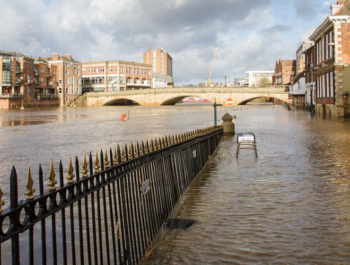Viktor Roezer

Viktor worked for the Grantham Research Institute from 2018 until 2023. Since September 2023 Viktor is a Lecturer in Risk, Environment and Society at the Department of Geography at King’s College London. From 2018 until 2023 he was part of the Zurich Flood Resilience Alliance (ZFRA) project. Viktor works on adaptation and resilience to flooding and other climate related risks with a focus on urban areas. He is interested in the quantification of flood impacts, the role of insurance and incentives for increasing pre-event resilience.
Background
Viktor completed his PhD at the Institute of Earth and Environmental Science, University of Potsdam, Germany. He worked as a research associate at the Hydrology group at the German Research Centre for Geosciences. His thesis focuses on the impacts of urban flooding with a focus on the coping capacity of private households. He completed his undergraduate degree in Geography at Ludwig-Maximilians-University Munich and holds a master’s degree in Environmental Hydrology from the Free University of Berlin. He has previously taught courses in Statistics at the Geography Department at Humboldt University in Berlin. Viktor also worked as a data scientist for an e-commerce start-up, developing predictive models.
Research Interests
- (Urban) flood resilience
- Flood damage mitigation, risk management and adaptation
- (Probabilistic) catastrophe modelling and insurance
- Early warning systems
- Bayesian statistics and machine learning
Research
Research - 2025
This study compares the rate of construction in high-risk zones across France and the UK, and discusses the impact of insurance and urban planning policies. Read more

This paper investigates the interactions between physical and transition risks on the sub-national level for petroleum-based economies. Read more

Research - 2024
This paper provides an empirical illustration of then ‘climate change risk reduction trap’ using the example of flash flood risk in Kuwait, a wealthy petroleum-based economy in the Middle East, and shows how decisions on urban planning and economic restructuring have increased flash flood risk. Read more

Research - 2023
This chapter is part of the 'Impact Assessment for Corridors: From Infrastructure to Development Corridors' book published by Development Corridors Partnership. Read more

The authors of this paper compile case studies indicating that refined methods and data have a considerable effect on the overall assessment of flood risk. Read more

The authors of this paper use an innovative analytical approach to investigate the knowledge gaps and challenges associated with considering multiple resilience dividends in the planning, implementation, and evaluation of disaster risk reduction interventions at the community level for the example of flood risk. Read more

Research - 2022
This analysis shows that urban flood resilience as a concept has evolved over the last two decades. From an engineering concept with a strong focus on ensuring that the built environment can withstand a flood to a more recent definition as a transformative process with the aim to enable all parts of the urban system to live with floods and learn from previous shocks. Read more
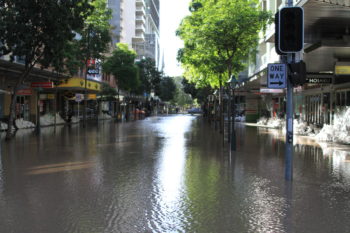
Research - 2021
Using the example of flood risk in England and Wales, this study looks at both the evidence for and drivers of business lock-ins to the physical risks from climate change. The findings show that decisions made today can lock businesses into future risk trajectories that may be difficult and costly to change. Read more
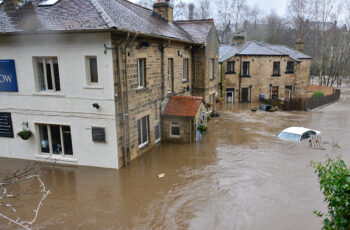
Despite improvements in the management of flood risk and the introduction of new regulations, losses from flooding remain high. An... Read more
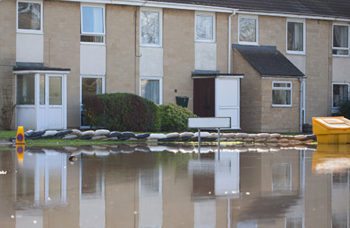
The concept of ‘multiple resilience dividends’ is not yet widely applied. This paper analyses the knowledge gaps and challenges that arise from applying ‘multiple resilience dividends’ in the planning, implementation and evaluation of disaster risk reduction interventions at the community level. Read more
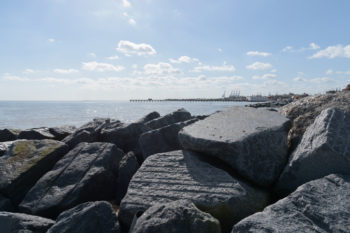
The authors of this paper present a proof‐of‐concept for an impact‐based forecasting system for pluvial floods. Read more

Research - 2020
The authors find that new homes built in economically deprived parts of England and Wales between 2008 and 2018 are more likely, compared with new housing in more affluent areas, to become exposed to high flood risk over their lifetime as a result of climate change. Read more
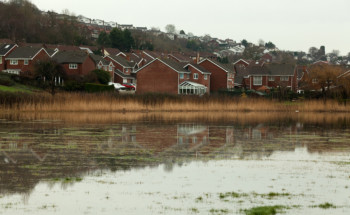
Flood damage processes are complex and vary between events and regions. State‐of‐the‐art flood loss models are often developed on the... Read more

Policy
Policy - 2025
This CETEx report aims to enhance understanding of sovereign catastrophe bonds, a type of insurance-linked security, as a tool in comprehensive disaster risk reduction. Read more

Policy - 2022
This WRI working paper analyzes the full benefits of climate change adaptation investments, divided into three types of dividends. Read more
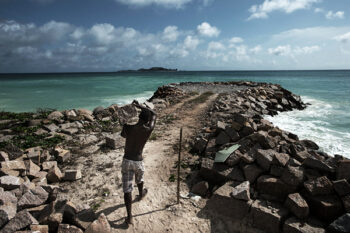
The Post-Event Review Capability (PERC) methodology assesses the impact of weather events in search of practical recommendations for reducing future damage. Read more
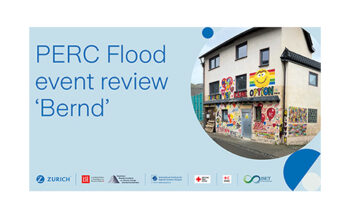
Policy - 2021
A submission based on work from across the Grantham Research Institute to the FCDO's recent call for evidence to inform the UK's forthcoming International Development Strategy. Read more

Written evidence submitted in 2020 to the House of Commons Environment, Food and Rural Affairs Committee Inquiry on Flooding, whose Fourth Report was published on 8 February 2021. Read more
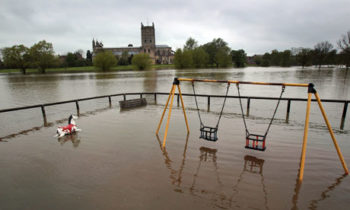
Policy - 2020
Part of a comprehensive review of flood risk management in mature economies, this report looks at the system in Germany. Read more

The Philippines is highly exposed to natural hazards including typhoons. This report, finding that financial aid tends to be heavily focused on response to hazards rather than preparedness and resilience, investigates why further disaster risk policy intervention may be required at the local level and provides guidance to policymakers. Read more
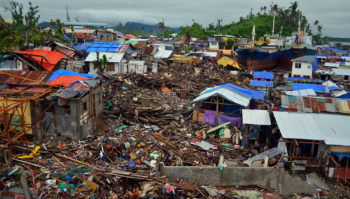
Policy - 2019
This submission was made to the Environment Agency's consultation on its draft strategy for flood and coastal risk management in England, and draws on the Grantham Research Institute's work and expertise over many years in this area. Read more
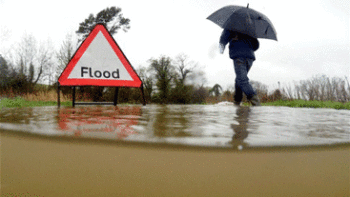
This paper summarises the Institute's submission to the Department for Environment, Food and Rural Affairs’ call for evidence on policy direction to prepare the UK for flooding and coastal erosion, drawing on a decade of work by the Grantham Research Institute with the insurance industry and policymakers addressing issues around climate change and adaptation. Read more

Books
Books - 2023
This chapter is part of the 'Impact Assessment for Corridors: From Infrastructure to Development Corridors' book published by Development Corridors Partnership. Read more

Events
News
News - 2023
Insurance schemes launched for heat, cyclones, drought. Viktor Roezer is quoted in the piece. Reuters 19 May 2023 Read more

News - 2021
Learning lessons from the devastating flooding in Western Europe and China – and raising awareness of the importance of flood risk reduction activities and the long-term consequences of inaction – should be seen as a necessary investment in our future, write Swenja Surminski and Viktor Rözer, as they draw out particular lessons for Germany. Read more
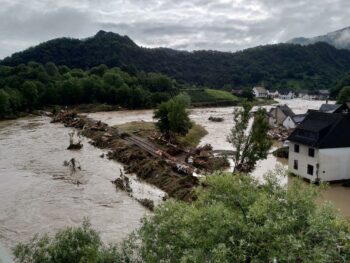
This article in The Guardian reports on a study showing that flood risk, as a result of climate change, will... Read more

News - 2020
Although current risk reduction attention is on COVID-19, climate change-related hazards such as flooding continue to have impacts around the world. This commentary evaluates new announcements on flood protection for England and reports on work by the Grantham Research Institute and partners on the Suffolk coast. Read more
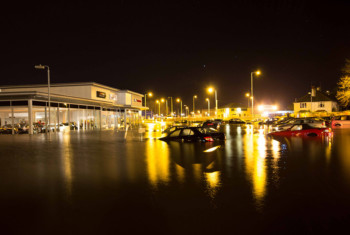
The severe flooding over the last two weeks in parts of Wales and England which destroyed homes, businesses and livelihoods... Read more
